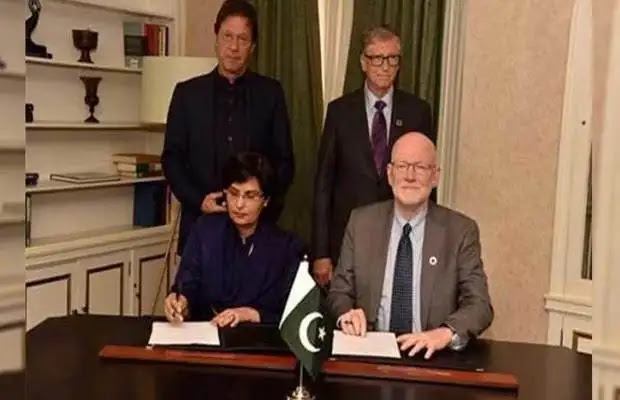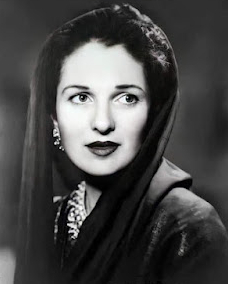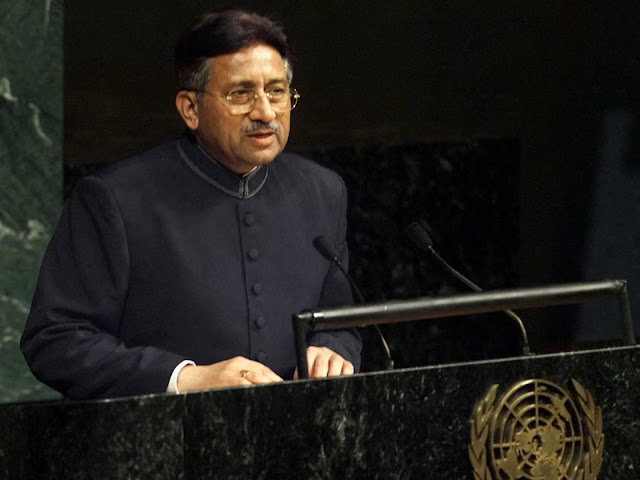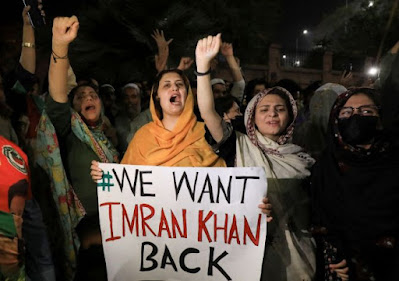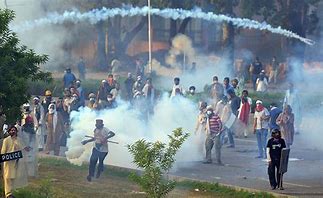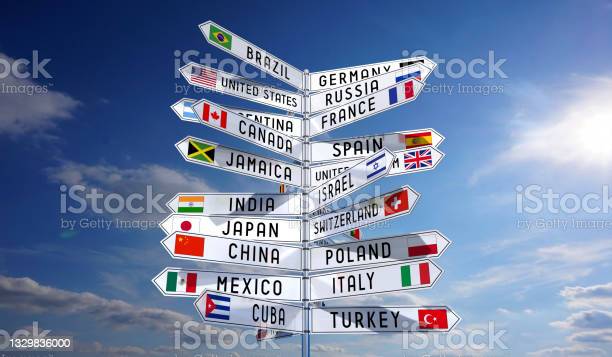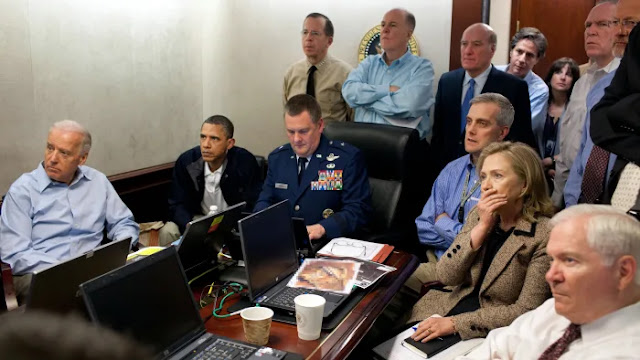Explore the status of human rights in Pakistan from 2018 to 2023. Examine the progress, challenges, and initiatives taken to protect and promote human rights during this period. Discover the key issues faced by vulnerable groups, the role of the government, and the efforts made to uphold human rights obligations. Gain insights into the advancements, achievements, and areas that require further attention in ensuring human rights for all individuals in Pakistan.
A peaceful and progressive society can only be achieved if freedom of expression, religion and beliefs, rights of women and children, and the rights of the vulnerable sections of society are protected. Every government needs to prioritize human rights and democracy as they are fundamental principles that ensure the protection and promotion of individual freedoms and dignity. Leaders need to prioritize the rights of vulnerable groups and work to ensure they are not exploited or marginalized. A commitment to a strong democracy, the rule of law, an independent judiciary, a free media, and a vibrant civil society can help promote and protect human rights for all individuals. The role of the government is crucial in this regard and Pakistan is still working towards the protection and promotion of human rights. It is encouraging to see that the former Prime Minister emphasized these commitments. As a member state of the United Nations, Pakistan has committed to upholding the principles of the UN Charter during Imran Khan’s regime, which includes promoting and respecting human rights and fundamental freedoms for all individuals without discrimination. The UN has several mechanisms in practice to hold member states accountable for their human rights obligations and to help them fulfil these obligations. The mission of Pakistan Tehreek-e-Insaf (PTI) was to protect human rights and uphold the supremacy of the Constitution. It emphasized that the protection of human rights is crucial for a country’s socio-economic development and that it is the state’s first responsibility to protect the rights of its citizens, which are ensured by the Constitution of Pakistan and the teachings of Islam. The role of Prophet Hazrat Muhammad (PBUH) in spreading the message of human rights was the key principle of Khan’s regime. So Khan emphasized that in the new Pakistan, everyone will have equal rights. He called on people to renew their commitment to ensuring the effective implementation of measures to protect human rights.

Pakistan was elected to the United Nations Human Rights Council for a three-year term starting January 1, 2021, during the PTI era. The election took place during the 193-member UN General Assembly and Pakistan received 169 votes in the Asia-Pacific group. The Human Rights Council is made up of 47 members and is based in Geneva. Pakistan’s then Ambassador Munir Akram expressed joy at the election results, stating that it reflects the country’s high standing in the international community. The country’s successful election to the UN Human Rights Council was a result of personal outreach to world leaders by Prime Minister Imran Khan and Ex Foreign Minister Shah Mahmood Qureshi, the guidance of the Foreign Ministry, and the contributions of Pakistan’s missions abroad and the ambassador’s team at the United Nations. This was the fifth time Pakistan was elected to the UN Human Rights Council. Its first election to the Council took place in 2006 when it was created by the UN General Assembly. During the election in the General Assembly, Pakistan received 169 votes, surpassing the required 97 votes. The election was conducted through a secret ballot and required a simple majority.
Members of the UN Human Rights Council serve for a three-year term and are not eligible for re-election immediately after serving two consecutive terms. The Council is an intergovernmental body within the UN system and its main responsibilities include strengthening the promotion and protection of human rights globally, addressing human rights violations, and making recommendations. The UN Human Rights Council’s membership is based on geographical distribution with the following allocation of seats:
- 13 seats for African States
- 13 seats for the Asia Pacific States
- 8 seats for Latin American and Caribbean States
- 7 seats for Western European and other States
- 6 seats for Eastern European States.
The World Bank has recognized the Ehsaas Emergency Cash program, governed and supervised by Sania Nishtar and an initiative by Imran Khan, as one of the top four social protection interventions globally based on the number of people covered. The World Bank released a report in May 2021 about global social protection responses to the COVID-19 pandemic, highlighting the success of the Ehsaas program in providing aid to those affected by the pandemic. The collaboration between Pakistan and the Bill & Melinda Gates Foundation to support the Ehsaas initiative aimed at alleviating poverty in the country continues the foundation’s more than a decade-long work in Pakistan. This partnership is expected to bring much-needed resources and expertise to address the complex challenges of poverty and improve the quality of life for people in Pakistan under the leadership of Sania Nishtar.
Polio eradication has been a top priority for the foundation in Pakistan, and their commitment to supporting the initiative is a testament to their continued dedication to improving the health and well-being of people in the country. The foundation’s investment of approximately $200 million in 2020 highlights its commitment to supporting the government’s efforts to end poverty and achieve the Sustainable Development Goals.
It is encouraging to see such partnerships between governments and international organizations to support the development of countries and improve the lives of their citizens. This collaboration between Pakistan and the Bill & Melinda Gates Foundation was an excellent example of the positive impact that can be achieved through strategic partnerships and collaboration.
Shireen Mazari, former Federal Minister for Human Rights in Pakistan, listed a few important initiatives taken by Khan’s government at the “Leaders in Islamabad, Business Summit” held on September 22, 2021. She explained that the initiatives led by Prime Minister Imran Khan, such as the Ehsaas program and Health card, are working towards creating a more equal society and a welfare state that provides support and equal opportunities to marginalized groups. Shireen Mazari emphasized the advancements made by the current government in the field of human rights and pointed out the actions taken by the Ministry of Human Rights to improve access to justice, promote accountability, and reinforce existing systems.

Dr Mazari mentioned the establishment of the Legal Aid and Justice Authority and its recent board of governors meeting to discuss its implementation. She added that her ministry is working on improving the criminal justice system, with a focus on ensuring that everyone has access to justice, regardless of their financial means. She emphasized the importance of these reforms in securing equal access to justice. Dr Mazari also highlighted the legislation introduced by the current government to protect human rights, such as the “Islamabad Capital Territory Senior Citizens Bill, 2021”, amendments to the “Protection Against Harassment of Women at the Workplace Bill”, and changes to “The Employment of Children Act 1991”. The Minister emphasized that Pakistan has one of the most advanced transgender laws in the world, and the rights of transgender individuals have been a priority for the Ministry of Human Rights. To promote these rights, the ministry has established protection centres and organized training and workshops for the judiciary and police. Regarding gender-based violence, Dr Mazari acknowledged the violence and harassment faced by women but added that the Ministry of Human Rights has proposed amendments to the “Protection Against Harassment of Women at the Workplace Bill” to expand its scope.
Additionally, the Ministry of Human Rights added special features to its helpline app during the Covid-19 pandemic to allow women who wanted to report domestic violence but were in the presence or fear of their perpetrator, to do so by dialling a special number. Dr Mazari also discussed child abuse cases and introduced the Zaineb Alert app to prevent child abuse and kidnappings. She emphasized the legislation related to enforced disappearances, journalist protection, and forced conversion, and mentioned the development of an action plan on business and human rights. Dr Shireen Mazari also highlighted that the current government has introduced foreign and defence policies that prioritize nationalism and focus on Pakistan. In conclusion, she emphasized the importance of having clear laws over harsh laws and stressed the need for a change in mindset through awareness and education.
According to reports and analyses by human rights organizations and media, the Imran Khan regime made significant efforts to improve the human rights situation in Pakistan. We can summarize the above discussion as the Khan government launched several initiatives to tackle issues such as police brutality, extrajudicial killings, and corruption. The government also took steps to protect the rights of religious minorities and women and launched several projects to provide education and healthcare to marginalized communities. However, some accuse that there are persistent human rights issues in the country, such as the suppression of freedom of expression, political activism, and dissent. That government was criticized for cracking down on the media, journalists, and human rights activists, and for failing to provide adequate protection to the persecuted communities. Imran Khan has consistently denied any involvement in political victimization and has stated that his government was committed to promoting human rights and the rule of law.
In conclusion, while the Imran Khan regime has made some positive changes to improve the human rights situation in Pakistan, much more needs to be done to address the persistent issues in the country. It is important to note that while the previous government made some positive changes, the human rights situation in Pakistan is a complex issue that requires continuous attention and efforts to address. The present PDM government, as well as civil society organizations, must work together to ensure that the rights of all citizens are protected and upheld.
It is concerning to hear about human rights violations, political victimization, and the arrest and torture of individuals by the present PDM government. Shahbaz Gill, Imran Riaz, Azam Swati, Fawad Chaudhry, Shireen Mazari, Shandana Gulzar and many PTI protestors even women are being arrested and brutally tortured. Un should take notice. These actions are unacceptable and contrary to international human rights standards. Today the Health Card is also terminated by the PDM government. The United Nations and other international organizations have a role to play in promoting and protecting human rights globally. These organizations need to investigate and hold those responsible accountable. The international community must work together to ensure that the rights of all individuals are respected and protected, regardless of their political affiliation.

